An interview with the photographer Mark L. Edwards by Zlatina Dimitrova
You are a founder of Great Notley Photography Club. Tell me something more about the idea.
When I was at college, studying photography, I used to work part-time in a photographic retail shop and often came into contact with what I thought at the time were typical “photography club members”. Typically, they were retired or at least, to me back then, quite old, very male dominated and they seemed to me to be more interested in the equipment they hung round their necks than in the photographs they created. I vowed as a student never to join a photography club. So here I am, 30 years later, as a founding member of Great Notley Photography Club – So what has changed? Well firstly, I got older. Secondly, to improve, I needed an environment amongst other photographers, which would foster faster learning and thirdly, with the digital revolution, photography has been opened up to a much wider range of people – both young and old, male and female.
Great Notley was started by a handful of local people who first sat down and described what they wanted the club to represent and offer. We also described what we didn’t want as well. One of the main criteria was that we wanted a club that regarded the images as more important than the equipment and that it would be a lively, fun club that was dedicated to learning but had a very strong local community social core. I think Great Notley Photography Club, now in it’s third year, has achieved all of those objectives.
<You had a long break from photography. Why?
When I left photography behind as a career, I felt quite disenchanted with it. In my young naivety I had wanted photography to be an artistic outlet for me. A newly qualified commercial photographer was never going to be given that freedom but my lack of knowledge, and with nobody to guide me in those days, meant I had to walk away from a career that I had coveted since I was 11 years old. I am not somebody who gives up easily and it was tough to let go. So when I did, I had to let go completely.
I kept a close eye on the development of digital photography via magazines and the internet and became intrigued at the claims that, at that time, digital was equal to film. I also had the same, ongoing need for a creative outlet and finally took the plunge back into photography, after more than 25 years, by buying a Canon 5D. I was immediately hooked.
Your portrait photographs are very impressive. How do you make faces “speak”?
Thank you. That is a really generous compliment, to say that they “speak”, as that is what I try to achieve. I have always been interested in people and have often been described as a “people watcher”. Now, armed with a camera, I do just that. When I have a camera in my hand and I am fully focused on the scene around me I feel totally at peace.
It is a very calming experience, like a form of moving meditation. It is when I am happy, relaxed and in the moment, focused on my subject, that I start to see those moments and can capture them. When doing candid street photography, I try as much as possible not to become part of the scene, which would alter some of the behaviour I am witnessing, as I want it to be as natural as possible. If I am taking more formal portraits, I aim to get the person as relaxed as possible and slowly give them less and less guidance, so they start to express themselves freely with their own expression and pose.
In a way, I want them to forget about the camera. This often happens if we have something in common and get lost in discussion. Then, it is a case of putting all the technical aspects of photography behind me and staying ready to capture that moment in time, which says something about who they are. I don’t believe in the machine gun approach of firing off hundreds of shots but prefer to pick the shots. Then, when it comes to processing, I quickly scan the images, looking for the image that really captures an aspect of their personality. During processing I am quite happy to use any post processing skills I may have, to emphasise that message, by simplifying the composition or enhancement in some way. I see the camera and post processing the way an artist sees his brush and range of paints; same objective with different tools. Neither paintings nor photographs capture reality, they are just a 2D illusion of a 3D scene.
Your street photos show different aspects of life and human relations. Which aspect intrigues you the most?
All aspects intrigue me as I want the camera to capture that moment or “slice of life” so that it can then be studied, and, often later, see something that I did not see at the time. However, I have recently been drawn to photographing some fairly sensitive issues that, in many ways, we tend to shy away from,either consciously or not. As my mother has Alzheimer’s, it has made me aware of the fact that, in normal, everyday life, we do not see sufferers, as in the latter stages of the disease they need full-time care and are consequently hidden away in care homes. My knowledge of the subject was embarrassingly limited until I was personally affected and realised what a painful and crippling disease Alzheimer’s is.
In the past, visiting London and other large cities, I saw homeless people and beggars, yet I never really registered their existence until I took a photograph of a homeless chap called Wayne and spent some time talking to him. I shamefully admit that part of me thought that their condition was mainly self inflicted. For some that maybe true but the issue is much more complicated than that. Whatever the cause, it is something that needs to be highlighted so that it can be addressed.
My view had been coloured, to some extent, by the stories we are fed in the media about “professional” beggars earning hundreds of pounds per day. Then my 14 year old son told me that he had seen a documentary on the homeless and that a third of people in hostels have severe mental health problems such as personality disorders. Once other conditions, including depression and anxiety, are taken into account, as many as eight in 10 are affected. The link between homelessness and mental health problems is well known, but the charities, which run homelessness services including hostels, said most are given no help. One of the key reasons why homeless people struggle to access services which they need is that they are often not registered with a local doctor and, thus, are denied treatment.
You work on a project about Alzheimer’s. What do you want the viewers of your photos to know about this disease?
The University of Oxford was recently asked to produce a report on the economic cost of dementia to the UK and the country’s investment in research to find new treatments, preventions and cures. The Oxford team’s findings are astonishing. They show dementia to be the greatest medical challenge of our time.
•Over 820,000 people in the UK live with Alzheimer’s and other dementias.
•Dementia costs the UK economy £23 billion per year – more than cancer and heart disease combined.
•Dementia research is severely underfunded, receiving 12 times less support than cancer research.
Which side of life cannot be photographed?
That is a tough question and made me think hard. I am not sure if I have an answer. All I can say is that highlighting an issue can bring awareness and with that can come understanding and hopefully help. However, I once saw a scene in the hospital where I was visiting my father. As I walked through the ward, I saw a very old and frail lady who looked close to death and kneeling beside her bed was a middle aged man, who I assumed to be her son. He was reaching out to her as she was stretching out a very thin hand to him. I could see in a second what was happening and it was such a graphic image. I had my camera with me as my father asked me to take some photographs of him in hospital. The light was coming in from a window behind them and it would have been an amazing photograph, yet I felt even to ask their permission would have been an intrusion.
You have a lot of black & white photos. Are these the colours of modern society?
When photographing some subjects I feel that black & white works best. That may go back to my approach in trying to simplify the image: removing colour eliminates one more distracting element and allows the viewer to focus on the form, shape and perhaps the message behind the image. It could be that anybody over the age of thirty would have been conditioned to seeing news images in newspapers in black & white when they were younger and somehow that communicates more gravitas, or it could simply be that black and white is associated through our historical images with more artistic or controversial topics. Perhaps it is a mixture of all of the above. I do know that, in choosing black and white over colour, the increase in dramatic affect can be quite startling.
If you could show your whole life in just one picture, what would it look like?
Since I don’t have a picture to show my whole life (I have a few years left yet ) I can only come up with an idea for part of that picture and wait to fill in the gaps. However, in part of the picture would be my three children, all different and unique in their own special ways, and we would be sitting with friends and family under a very large and beautiful oak tree on a gorgeous summer’s day. Perhaps I should make that my next personal project…
You can find more Mark L Edwards’ photos here.
Mark L. Edwards
Mark L. Edwards is a founder and active member of the Great Notley Photography Club. He used to say he’d never join a photography club.
He is currently working on two photography projects. The first is a series of images of his mother who is suffering from Alzheimer’s. The intention is to highlight this terrible disease and to also raise money for The Alzheimer’s Research Trust.
The second project is a series of black and white street images that he wants to submit to The Royal Photographic Society for their ARPS qualification.He started taking Digital photographs towards the end of the summer (August 2007) after a break from photography for 25 years.
He says that the last two years “have been a journey through photography”. He strived to improve his photographic skills but it turned out that it also allowed him to better understand himself.About his photographic experience he says:
“When I have a camera in my hand and I am fully focused on the scene around me, I feel totally at peace. It is a very calming experience, like a form of moving meditation. Happy relaxed and in the moment, focused on capturing what I am seeing, feeling and wanting to convey.
There are many disappointments and frustrations as I try to create images that I am proud of. How I have handled those frustrations and disappointments has allowed me to understand more about myself.
When it is so easy to let your life slip by in a endless stream of busyness what a gift it is to be able to step out of that flow for a few hours and just STOP. Relax and stop the internal chatter of our minds that clutters our life. In those moments of calm when I feel centred without any worries or care, just enjoying the moment, that is when we get the breakthroughs in self discovery and development. They may not appear at that precise moment but I think just giving your mind that holiday is when we allow our mind the space to figure out the really important questions. The questions that reach to the real essence of who we are and what makes us happy. The Dalai Lama once wrote a book all about how the essence of life is to be happy. Clever chap, I wonder if he takes photographs?”

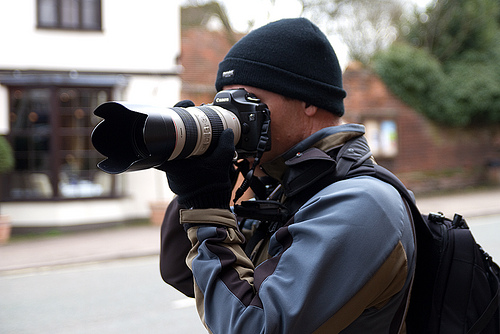
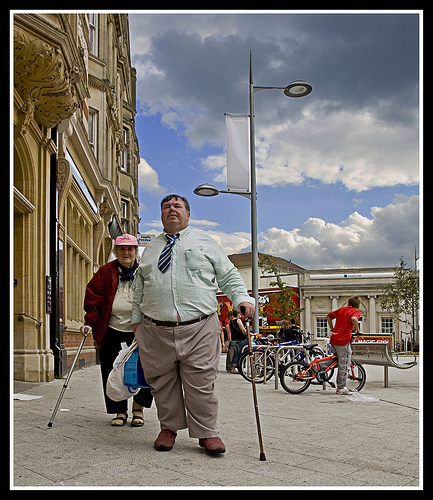
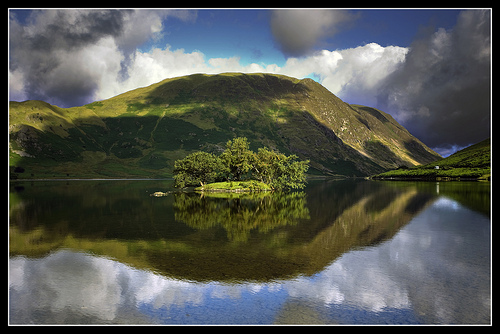

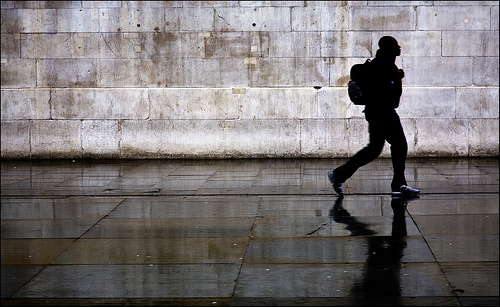
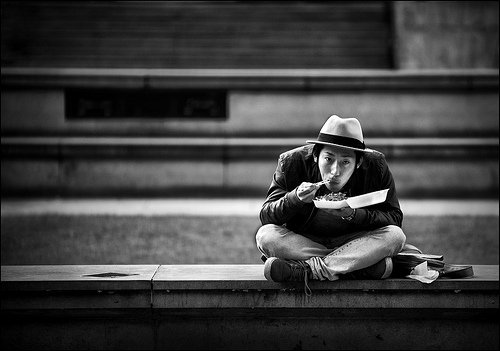
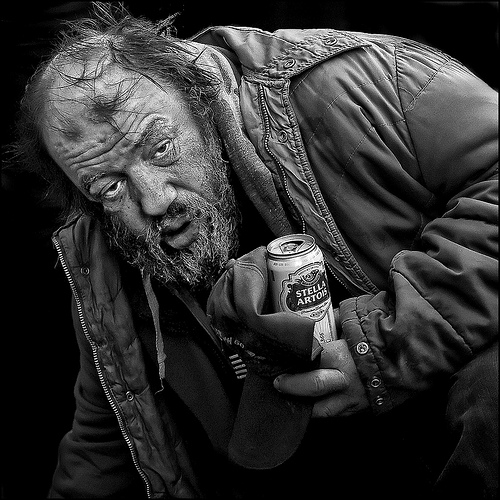
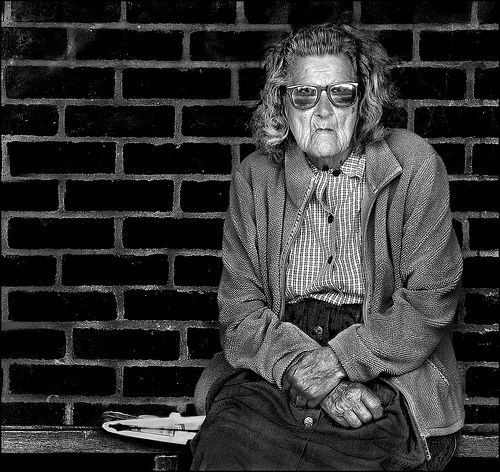
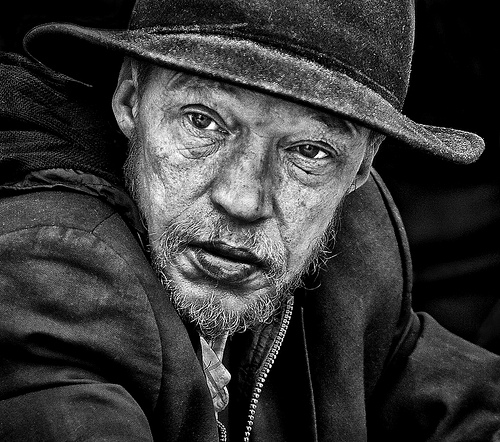

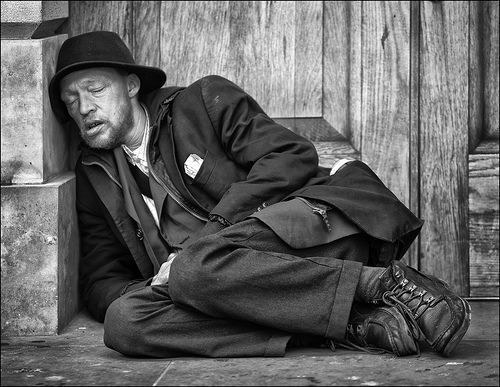
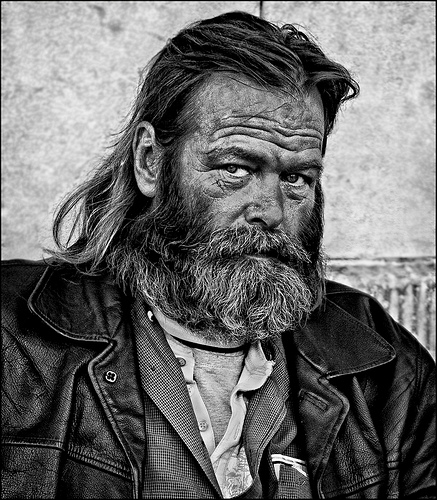
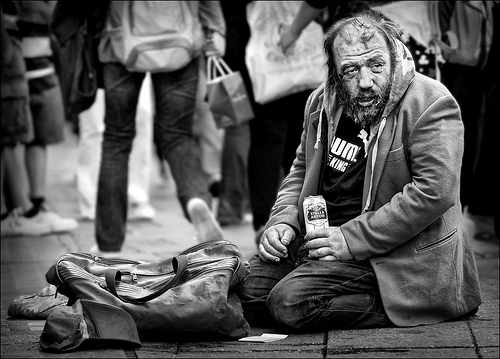
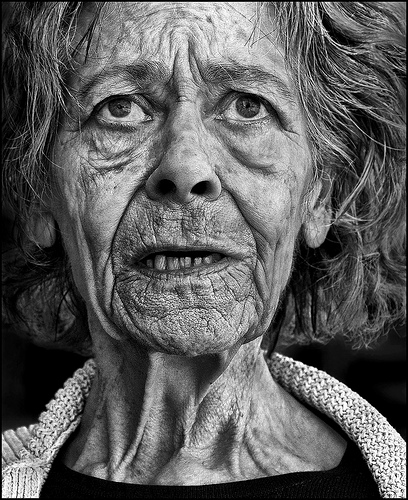
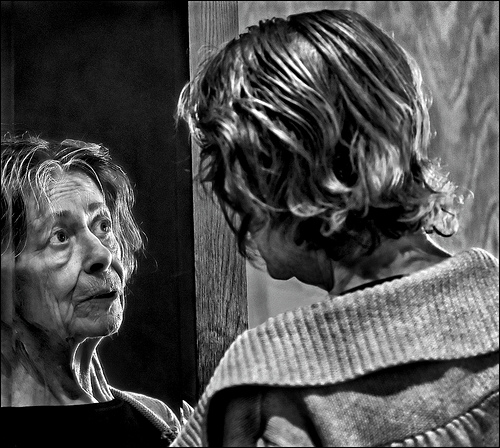
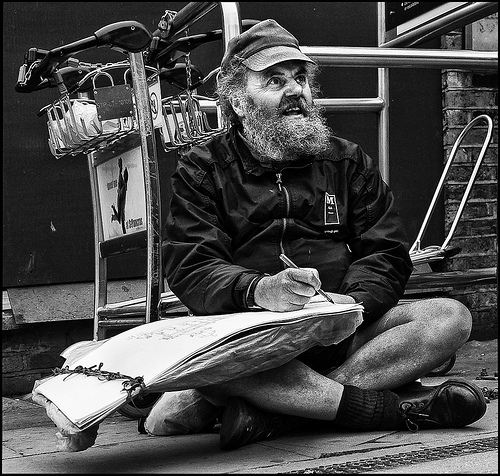
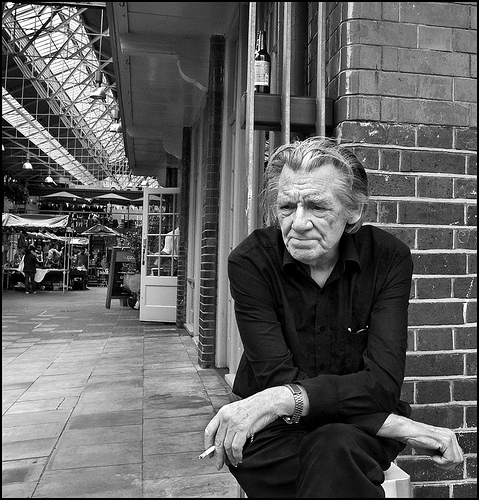
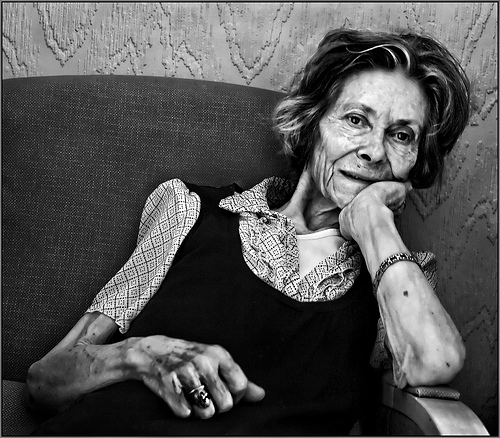










No comments so far ↓
Nobody has commented yet. Be the first!
Comment